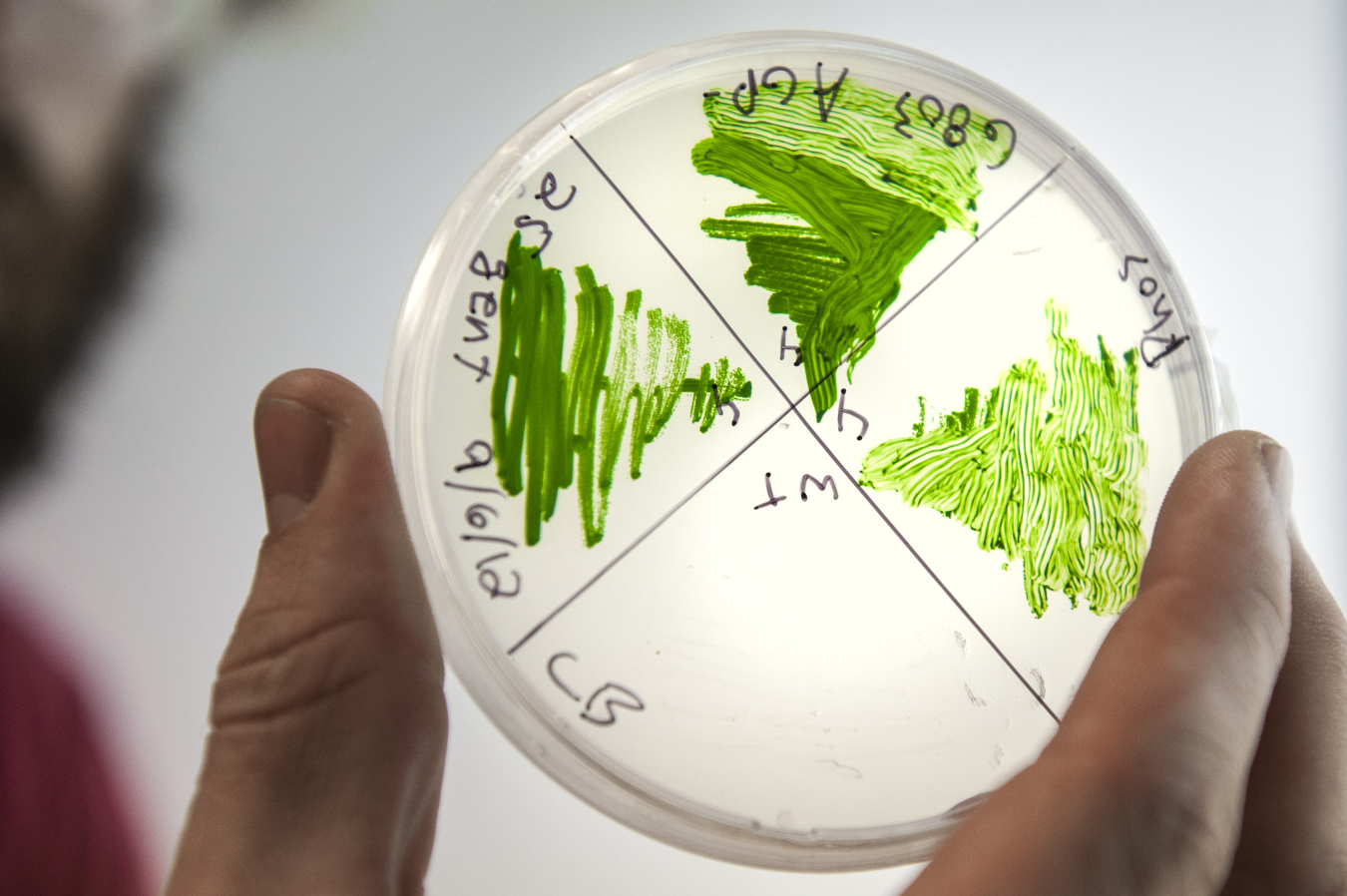The R&D 100 Awards, presented annually by R&D Magazine, recognize 100 of the most innovative technologies and services of the year across nine cate...
August 13, 2015
Cyanobacteria cultures. Photo by Dennis Schroeder/NREL.
The R&D 100 Awards, presented annually by R&D Magazine, recognize 100 of the most innovative technologies and services of the year across nine categories and are selected by an independent panel of more than 70 judges. In July, the National Renewable Energy Laboratory’s (NREL’s) cyanobacterial bioethylene project was announced as a finalist in the mechanical devices/materials category for the 2015 awards. This project is funded by the U.S. Department of Energy’s Bioenergy Technologies Office.
In this NREL project, scientist Jianping Yu proved that a certain cyanobacterium can be genetically engineered to produce ethylene—a petrochemical feedstock used in the manufacture of plastics and polyester. Ethylene is the largest petrochemical produced by volume in the world, and is currently made most often by petroleum and natural gas. Producing ethylene from cyanobacteria, a form of algae, would create a bio-based alternative for products using ethylene. Read more from the NREL feature story.
The Bioenergy Technologies Office (BETO) provides funding through its Algae Program to support the development of algal biofuels and bioproducts. This work supports BETO’s overall goals to develop, sustainable, cost-competitive biofuels and bioproducts that can reduce U.S. dependence on foreign oil, grow local economies, and reduce greenhouse gas emissions.

